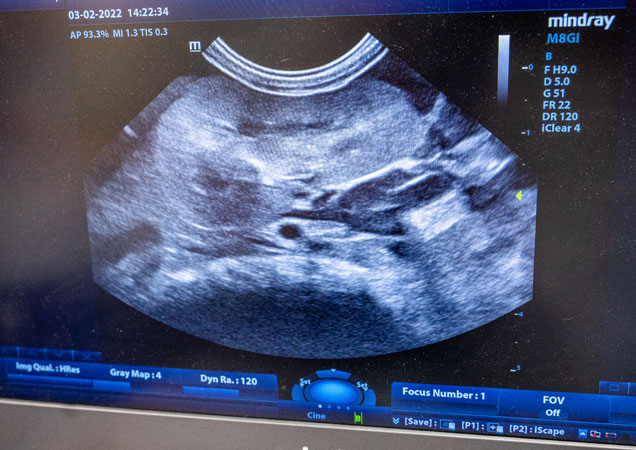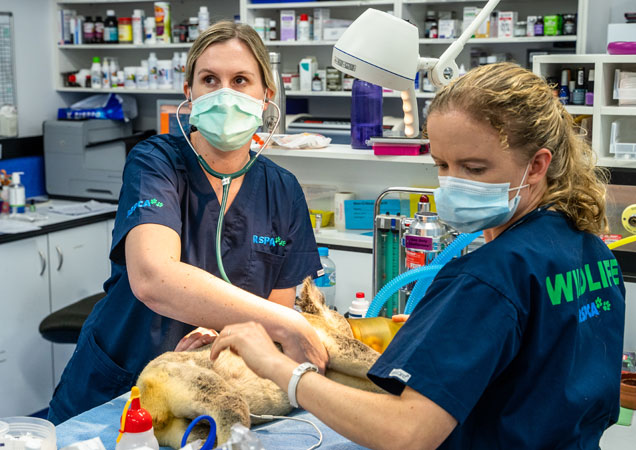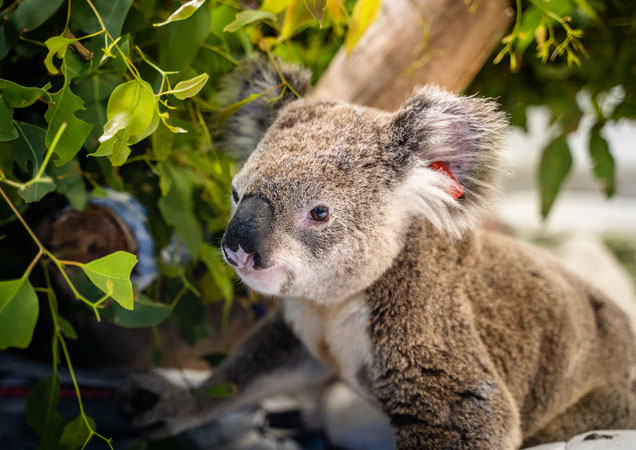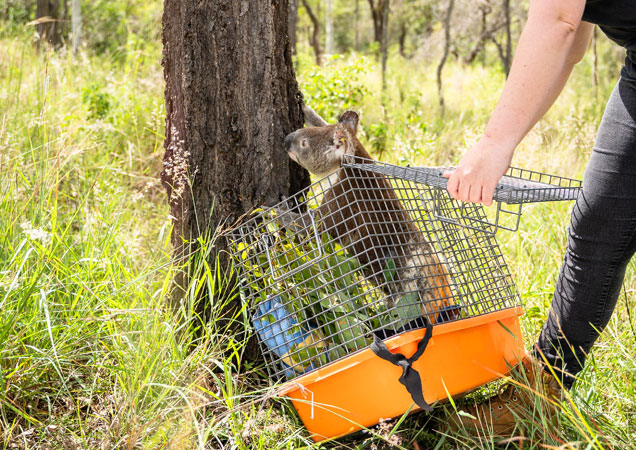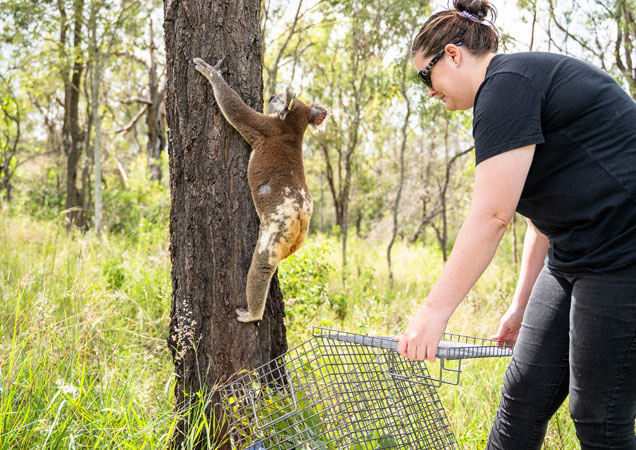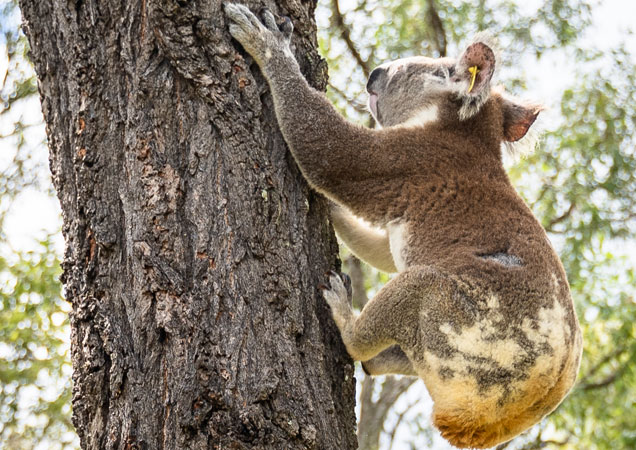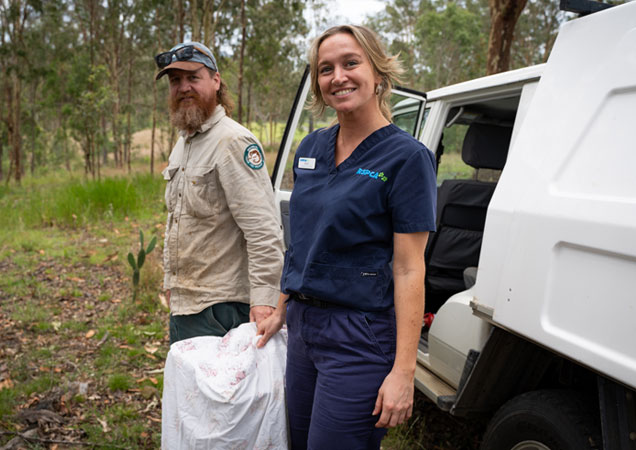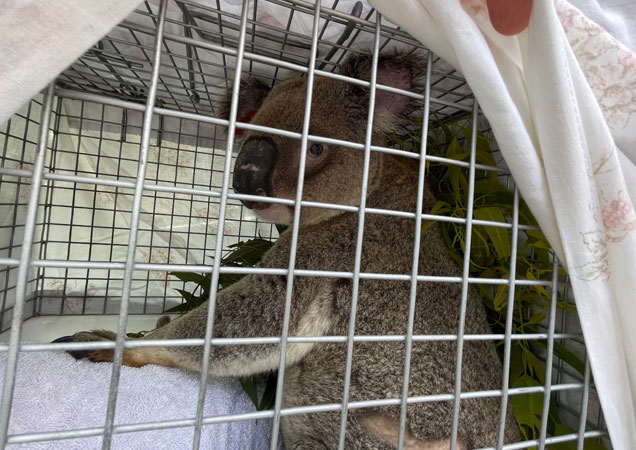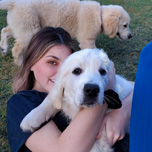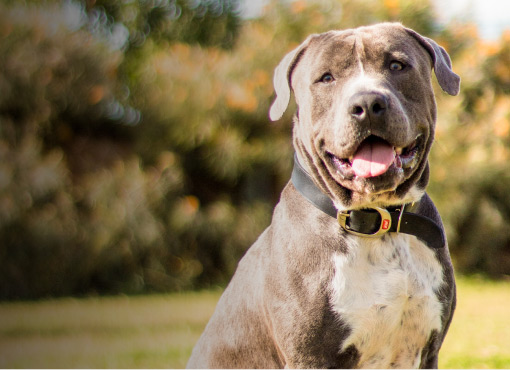RSPCA Queensland regularly treats new koala patients every week at the Brisbane Wildlife Hospital and Eumundi Rehabilitation Centre, with 53 koalas admitted for care this year alone.
One of our adorable patients in care is Chase. Hit by a car in January, this nine-year-old koala was brought into the Wildlife Hospital for veterinary treatment. Sustaining a pelvic fracture and chest injuries, Chase is now undergoing rehabilitation at our Eumundi Centre with the hopes of making a full recovery.
Watch our Eumundi Team and Cosmo the koala in our care right now


